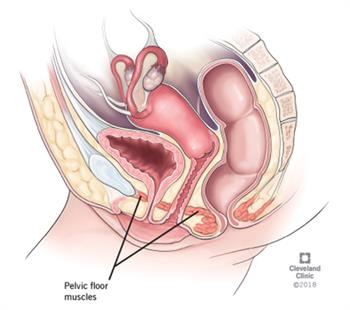02. maart 2023
How your bladder functions every day can tell you a lot about your overall health. How often you urinate during the day and during the night, the color of your urine and whether you can hold it all provide clues to health conditions that don’t involve your urinary system. Here are three major signs to watch for:1. Increase in frequency How often you have to urinate is a good indicator of your body’s overall state of hydration. It’s considered normal to have to urinate about six to eight...
04. januari 2023
Vaginal prolapse occurs when pelvic organs migrate down towards the opening of the vagina. It typically occurs because of muscle weakening due to age, giving birth, heavy lifting, and more. Vaginal prolapse can be treated by pelvic floor therapy, supportive devices, or surgery. Vaginal prolapse, sometimes referred to as pelvic organ prolapse, is a common condition that affects women in their lifetime, especially later in life. A prolapse is when an organ shifts out of its usual position, so a...
10. december 2022
Pelvic floor dysfunction is the inability to correctly relax and coordinate your pelvic floor muscles to have a bowel movement. Symptoms include constipation ...
06. mei 2020
There are promising signs that pelvic floor muscle training has a positive effect on vaginal dryness and dyspareunia in women with genitourinary syndrome.




